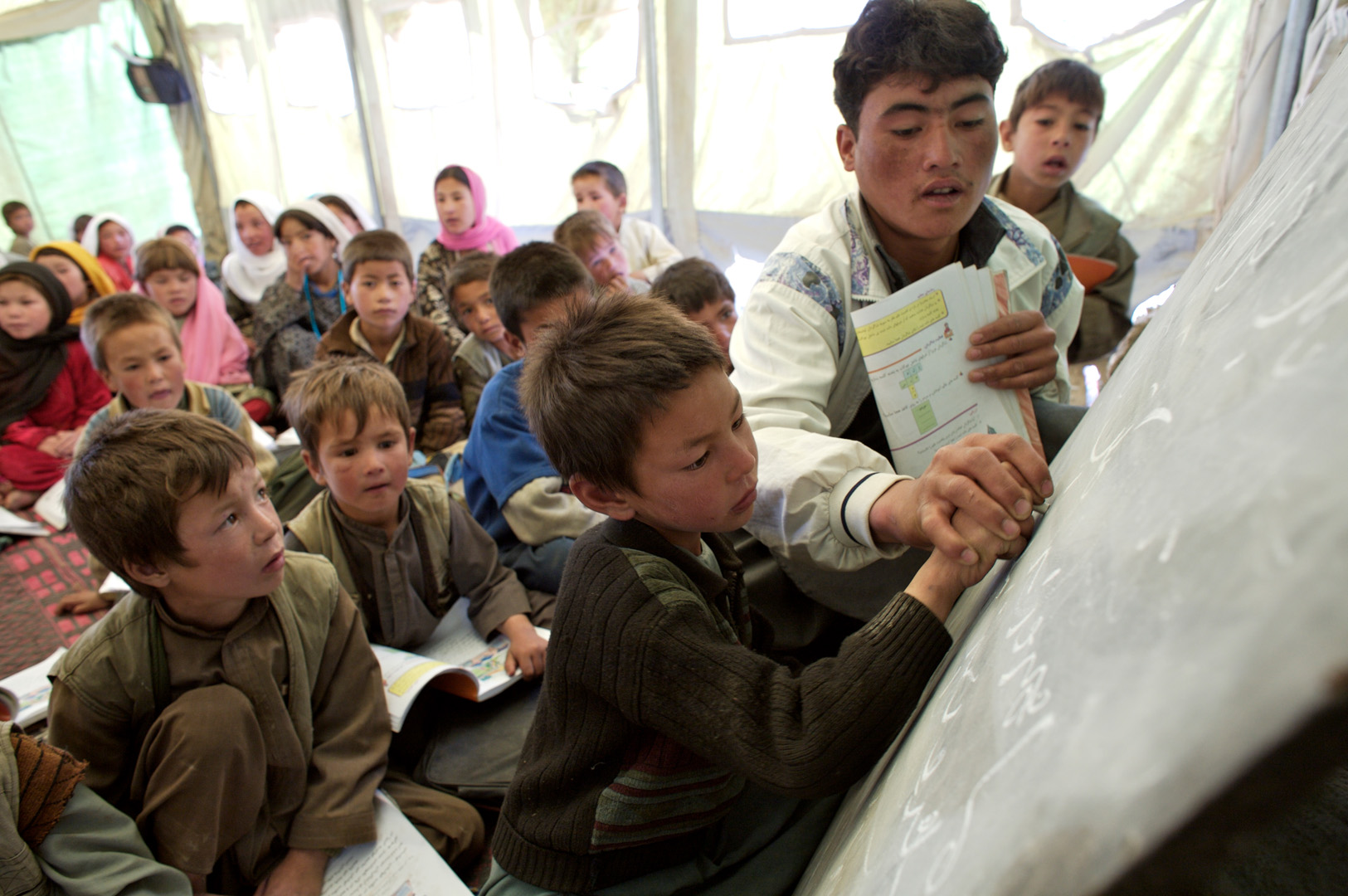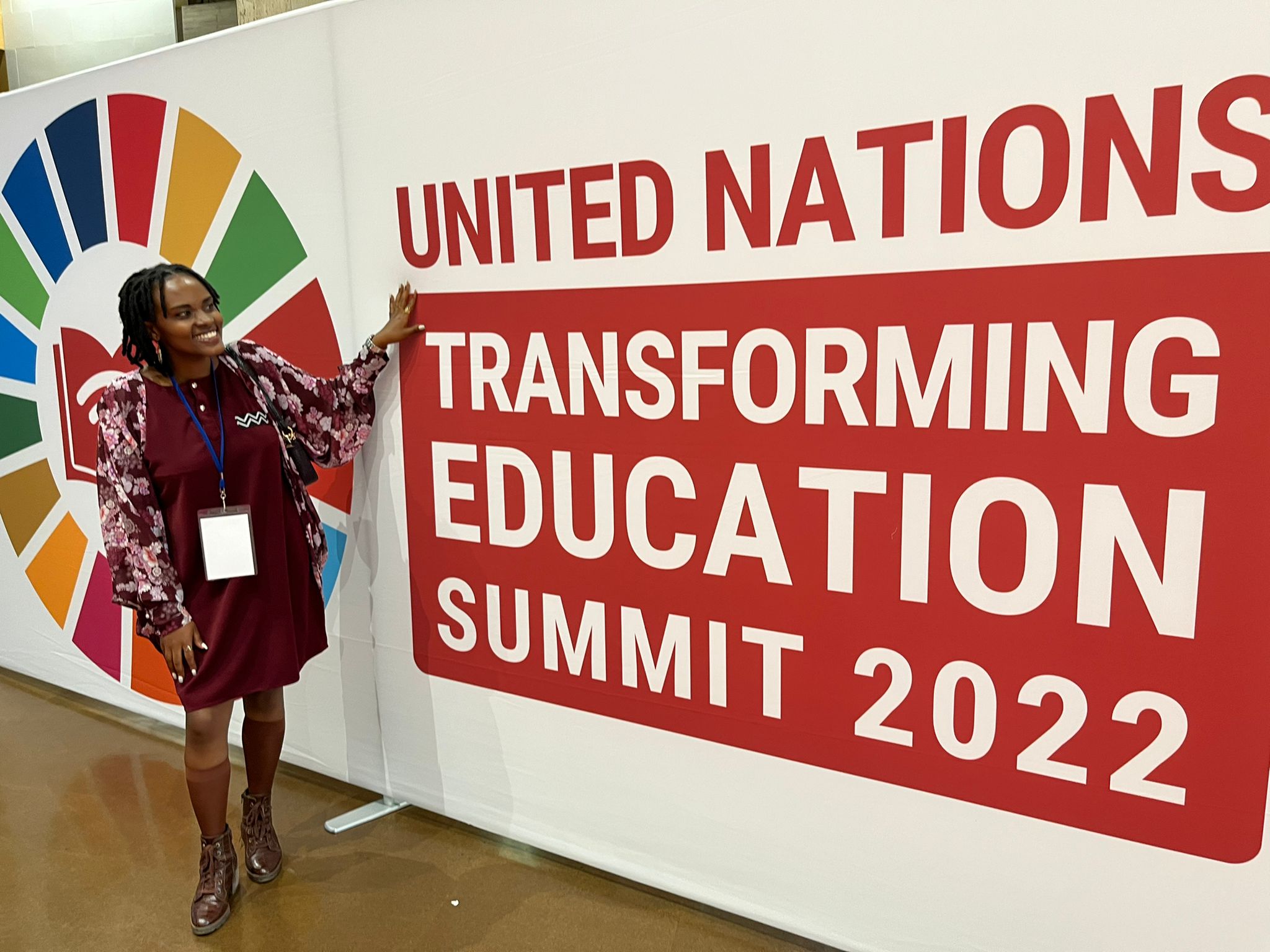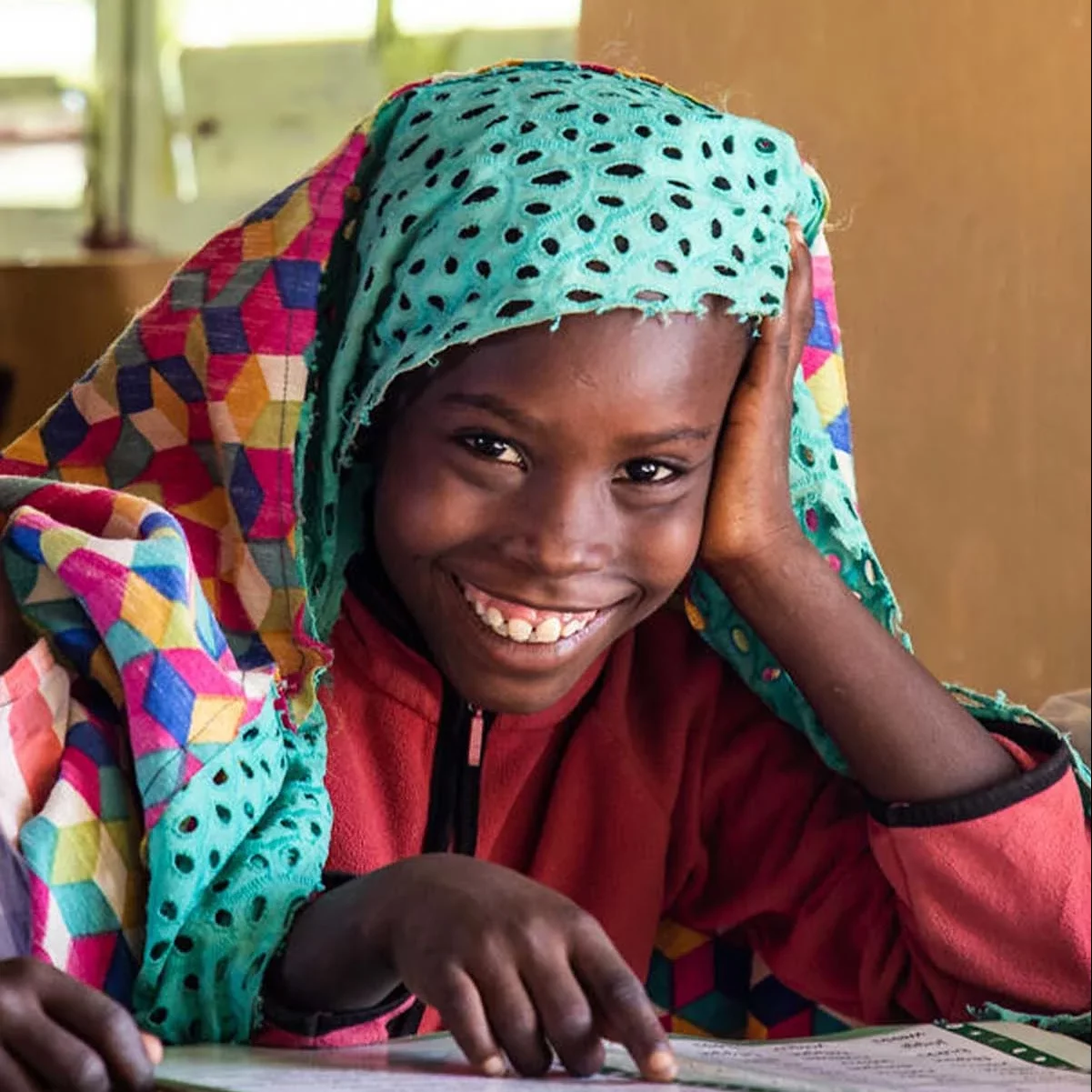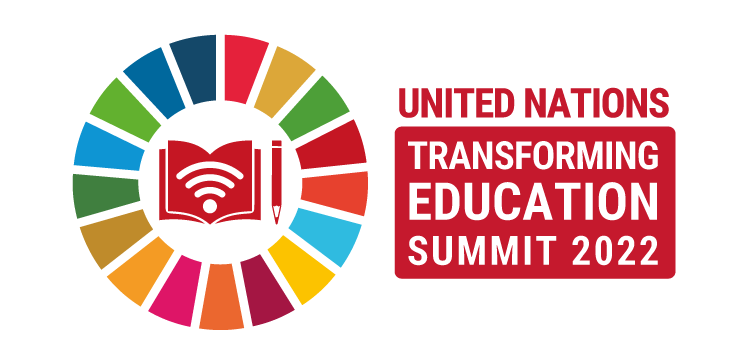What is the Transforming Education Summit?
The Summit will be convened by the United Nations Secretary-General during the 77th UN General Assembly to mobilize greater political ambition, commitment and action to get education back on track.
The intention for the summit was announced in his report, Our Common Agenda, as part of a greater commitment to championing lifelong learning for all. It is underpinned by four key principles: country-led, inclusive, youth-inspired, and building on existing efforts.

Why does it matter?
Advancing education is a collective effort, and we need everyone onboard. The Education Summit is not only an opportunity to bring together education stakeholders, but also to urge those countries who are falling behind to step up and invest the resources and attention to meaningfully transform education. Not only that, but it is an opportunity for an inclusive, supportive and collaborative dialogue, driving a global movement to achieve SDG 4.
Only through this sort of environment can we hope to make the strides necessary for true transformation.
What are we talking about when we say ‘education’?
For this summit, the topic of education has been broken down into 5 themes areas also known as ‘Thematic Action Tracks’, which have been identified to have the greatest transformational potential and will guide dialogue, collaboration and outcomes from the summit.
1. Inclusive, equitable, safe, and healthy schools
We must ensure that all learners have unconditional access to and participation in education, that they are safe and healthy, free from violence and discrimination, and are supported within the school setting.
2. Learning and skills for life, work, and sustainable development
We must empower learners with knowledge, skills, values and attitudes they will need to weather an uncertain future while contributing sustainably to the well-being of society and the planet.
3. Teachers, teaching, and the teaching profession
We must maintain an adequate number of well trained, motivated and supported teachers through funding, and policies which recognize and support the teaching profession.
4. Digital learning and transformation
To make education more inclusive and equitable, investments and action in digital learning must center the most marginalized, be free to access, and drive innovation and change in teaching.
5. Financing of Education
We must urge funders to redirect resources back to education to close the global education financial gap, while ensuring countries’ resources are equitably and effectively allocated and monitored.
The Story so far
Work towards the summit has already been underway for more than a year, including:
The ReWired Summit
The summit invited stakeholders from across the world of education to break out of traditional conversations and explore new, innovative ideas around three key areas in education: Youth, Skills and the Future of Work; Innovation in Education; and Education Financing. Read More…
The World Non-Formal-Education Forum
This three-day forum culminated in an ambitious action agenda in the form of the Rio Declaration on Non-Formal Education, calling for the advancement of non-formal education as a powerful vehicle for young people’s development. Read more…
Thematic Action Tracks
Each of the five thematic areas is led by a champion member state(s) and a leading stakeholder, with support from one or more UN or multilateral entity and the Special Adviser to research evidence, situation analysis, good practices and innovations, and recommendations. Read more…
Update: Discussion papers have been prepared by the co-leads of the Thematic Action Track, in consultation with countries and partners. You can view them all here…
National Consultations
Government-led national consultations are being undertaken to generate inclusive and meaningful engagement from those involved in education at all levels, including students, youth organizations, activist groups, teacher associations, religious leaders, and others. Read more…
Public engagements and mobilizations
At the request of the Summit Secretariat, the UN Foundation have convened the Public Mobilization Hub to bring together key stakeholders across sectors to raise awareness on the urgency to transform education, build a global movement on transforming education, and encourage decision makers to make bold commitments for education. Read more…
Youth mobilization
Through initiatives like the Youth declaration, the Summit seeks to engage youth. Through in-person and online consultations, the youth declaration will collect recommendations, commitments and actions from young people all over the world. Read more…
Pre-summit
This hybrid event saw 2,000 people come together in person and almost 9,000 online. It was a key milestone towards a movement for global education, offering a platform for young people, teachers and caregivers, as well as countries and education leaders, to join forces and make their voices heard. Read more…
Transforming Education Action Group
Alice shared the stage with the First Lady of Colombia, and Education Ministers, as she expressed young people’s priorities. Read about Alice’s experience here…
Unlock Coalition’s Transforming Education Action Group: Since the Big Brainstorm, Alice and Thaís have mobilized a network of education champions to ensure young people have a central role in designing and delivering the summit, promoting accountability for its results.
The group submitted a letter to the Deputy Secretary-General at her request outlining young people’s priorities for the summit. They also met with Leonardo Garnier, the Secretary-General’s Special Adviser for the Summit, to discuss their proposals.
A Leadership Lab was held to foster collaboration, share leadership skills, and unearth essential insights for transforming education from the youth perspective.
Jointly with the Education Commission, the Action Group has written letters to governments encouraging them to attend the Summit and commit to transforming education. Read the letters…

What happens next?
All of these efforts will come together at the Transforming Education Summit on 19 September. It aims to boost national and international commitments to action and generate greater public engagement to transform education with young people.
Mobilization Day – 16 September
Mobilization Day will be youth-led and youth-organized to convey the collective recommendations of youth on transforming education, informed by the Youth Declaration.
Solutions Day – 17 September
Solutions Day will provide a platform for partners to mobilize support to launch or scale up initiatives connected to the Thematic Action Tracks.
Leaders Day – 19 September
Leaders Day will see the presentation of National Statements of Commitment by Heads of State and Governments in the form of leaders roundtable. A limited number of thematic sessions will be held to focus on cross-cutting priorities for transforming education. Leaders day will also feature the presentation of the Youth Declaration and the Secretary-General’s Vision Statement for Transforming Education.
A summary report will be published at the end of the summit, capturing the knowledge and experiences curated through the preparatory process and informing how best to go forward. This will then be taken forward by the SDG 4 Education 2030 High-Level Steering Committee, and will also inform the Summit of the Future in 2023.

